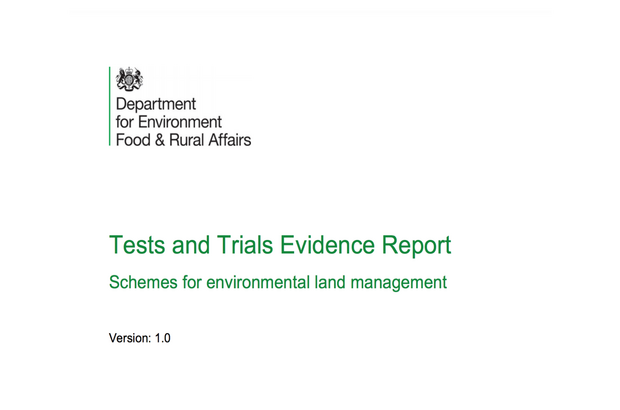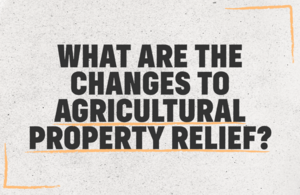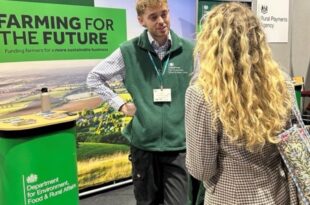We recently published the latest evidence report which pulls together our findings from tests and trials.
The report gives an overview of everything we’ve learnt across our 78 tests and trials over the last 6 months. In this post, I’d like to share a summary.
We split the findings of the report into several themes.
For example, what farmers think about using land management plans in the new environmental land management schemes, how environmental actions and outcomes should be valued, and what they think about collaborating with other farms in their area.
Many farmers like the idea of land management plans and find them useful. They support having a template for the plan if it can be easily changed for different farms. Most farmers agree that the template needs to include maps of the farm. These could be paper maps or displayed through a mobile app.
Most farmers would like some advice when joining a new scheme, but it should be optional. There is interest from farmers to manage agreements themselves without support. But when it comes to more complex land management actions, most farmers and land managers feel they will need some additional support.
We’ve been exploring the role of ‘local conveners’ who could bring people together to plan priorities, make decisions and collaborate with each other at a local level.
There is support for the idea of the convener being local, with an understanding of the area, and the ability to build long-lasting relationships. Some tests and trials have suggested that local boards, made up of local farmers, charities and government should be set up to support conveners across the country. This could help to make sure that any decisions made about local priorities will work for everyone.
It’s not yet clear at what scale local priorities should be set. Some farmers support the use of broad frameworks like National Character Areas. However, others would rather focus on a smaller scale, such as their local river catchment. What’s clear is that lots of the data sets that would be needed to set local targets and priorities are outdated and difficult to get hold of.
We’ve seen a pattern across lots of tests and trials that farmers would prefer to collaborate when they share an interest.
A facilitator, financial incentives and good governance are important to encourage collaboration. Where farmers are hesitant to collaborate, the findings suggest that confidence increases with experience. For example, beginning with group farm walks, with the option to work more with neighbouring farms over time.
There is now strong agreement that payment rates based on the typical ‘income foregone plus costs’ approach are not always the most effective way to reward farmers. Tests and trials have suggested several alternative ways to set payments. For example, having results-based top-up payments or points-based payment systems.
We have received proposals for how private funding could be combined with government funding to pay farmers to deliver public goods. One option would be for a body to bring farmers together to deliver public goods at scale and then match the environmental benefits to what the funders need.
These insights have been reflected in our approach to payments for the early roll out of the Sustainable Farming Incentive and our payment principles for environmental land management schemes. Both of these documents were published in June of this year
If you have any questions about test and trials, leave a comment below or email ELMtestingandtrials@defra.gov.uk.
If you'd like to get involved in our co-design work, send an email to ffcpcodesign@defra.gov.uk
Finally, make sure to subscribe to the Future Farming Blog for the latest updates.







 The
The 